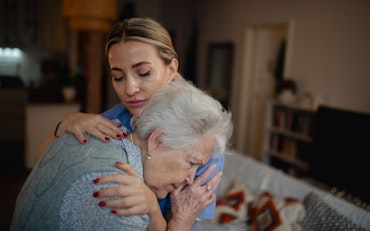Home care providers support for ‘home deaths’
Home care providers are offering more palliative care support services to those wishing to die at home, as a new report reveals, with increasing numbers of people expected to die each year, greater plans must be put in place to support home deaths.
Western Australia is reportedly leading the way in the provision of palliative care through not for profit community health and care organisation, Silver Chain Group, with the organisation supporting more than 65% of people to die at home if they choose.
This corresponds with the Grattan Institute’s Dying Well report which makes key recommendations to ensure that Australians are able to choose where and with whom they die.
The Dying Well report, released last month, talks about how, where and with whom we die and found that despite people wanting to die comfortably at home, supported by family, friends and effective services, only about 14 per cent do so.
Silver Chain Group has reportedly been supporting patients and their families to die at home for more than 30 years.
David Larmour, Silver Chain director hospice care service, says the organisation has a long held belief that people want to die at home and this is evident in the palliative care services provided, supporting more than 1,000 patients a day across Australia.
We have a large multi-disciplinary palliative care team including community based doctors, nurses, allied health staff and volunteers who provide support 24 hours a day, seven days a week. Together, they ensure that we continue to provide high quality care and deliver excellent patient outcomes,” Mr Larmour says.
“The Group supports the recommendations of the report, and with increasing numbers of people expected to die each year, more needs to be done to ensure that end of life preferences and plans are put in place and more people are able to be supported to die at home if they wish.
“Our organisation has been able to continue to provide high quality care at home thanks to strong investment from consecutive WA State Governments who recognise and support an alternate proposition to hospital based care for those who are dying.”
Dying Well concurs with Mr Larmour’s comments in its references to Silver Chain Group’s home based palliative care services in Perth stating that the service is a best practice model of care that significantly increases the proportion of people who are able to die at home.
“During the past financial year, more than 65% of all clients who were receiving home based palliative care were supported to die at home,” Mr Larmour says.
National benchmarked data on the quality of services provided indicate that for most people using the service, pain, distress and symptoms were managed successfully at home in a timely fashion.










